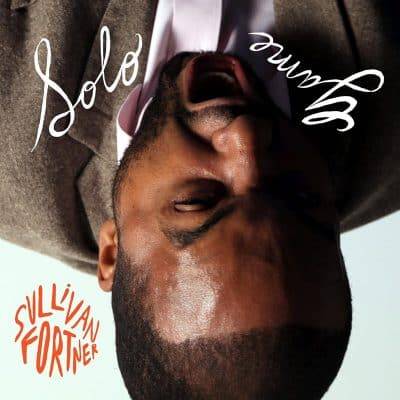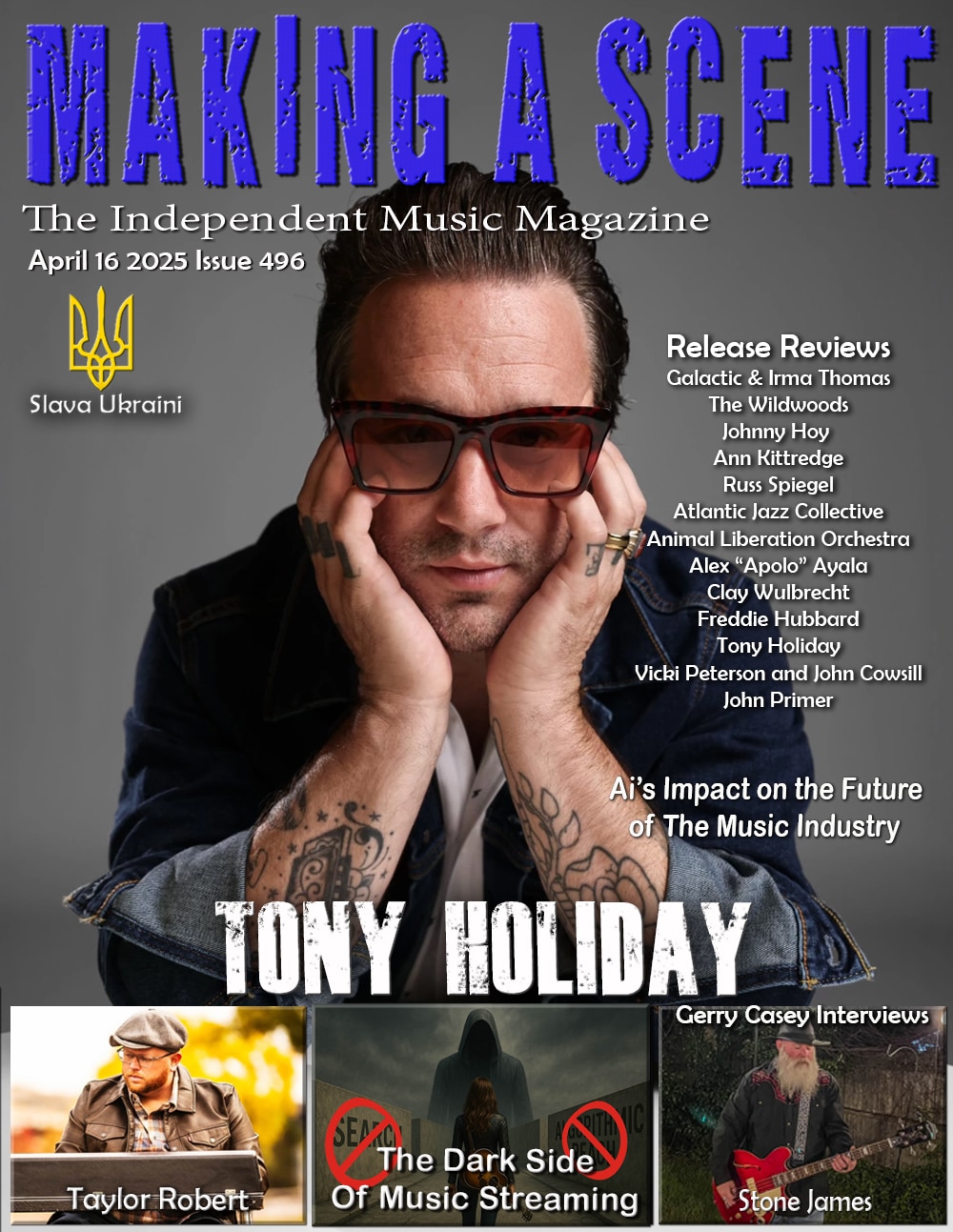Sullivan Fortner – Solo Game
 Sullivan Fortner
Sullivan Fortner
Solo Game
Artwork
We’ve covered many pianists this year in 2023, remarking often about this new generation that includes the likes of Isaiah J. Thompson, Sean Mason, Joey Alexander, and several others. Yet, the generation that preceded them, the ‘thirty somethings’ if you will, point to Sullivan Fortner with the utmost admiration. His reputation, as he nears age 37, has long been established first as a sideman for some 24 albums, most notably with Roy Hargrove from 2010 to 2017. In 2015, Fortner won the American Pianists Association Cole Porter Fellowship in Jazz and issued his first album as a leader, Aria on Impulse! that same year. The New Orleans born and raised pianist now issues his fourth as a leader and his first solo piano album, Solo Game, a double CD at that, on his label debut for Artwork Records, the same label that boasts a Grammy nomination for Kenny Barron’s solo effort, The Source, that launched the label. Readers of these pages have seen Fortner’s name on albums from vocalist Lauren Henderson and Fortner has been almost inextricably linked to arguably the premier female vocalist of this era, Cecile McLorin Salvant. Yet, it’s this album that will likely be talked about more than any of Fortner’s previous impressive accomplishments.
The story and process behind this two-sided project are fascinating to begin with. Fortner called upon one of his mentors, Fred Hersh, to make a solo piano recording of standards from the Great American Songbook as well as classics by Stevie Wonder, Randy Weston, and Antonio Carlos Jobim. The material chosen was made in several stages. First Hersch asked Fortner to draw up a list of his favorite pieces, and then he made a first selection himself. Four recording sessions were set up next, and in each one Hersch suggested six titles from that second list… with the game for Fortner to come up with an interpretation of them on the spot, without rehearsal and with no possibilities to do a second take. At the end, there were 24 tapes of recordings made and from those Hersch made a final selection of the nine titles that would make up the album, Solo. In his audio notes that you’ll hear on the album, Hersch claims that 20 could have easily made the cut. As a slight digression, this writer had the opportunity to hear Fortner in several contexts – trio, duo with Salvant, and sideman in large ensemble on The Blue Note Jazz Cruise in 2023 so none of this comes as a surprise, having witnessed Fortner’s improvisational talent. The most indelible memory is Fortner singing “Embraceable You” while holding a mic in his right hand and simply accompanying himself with his left.
The second set, Game, does come as a major surprise, however. This is a radical experiment wherein Fortner first frames originals on the piano and then ‘orchestrates” by using diverse electronics and percussion in post-production such as Protocols, Melodyne, and Auto-Tune to build amazing soundscapes. In addition to piano plays Fender Rhodes, Hammond B3 organ, vibes, celeste, chime tree, Moog, vocoder, hand percussion, egg shaker, triangle, vocals, hand claps, shakers, Canopus bass drum, and Mongolian gong. Tracks for both sessions were all laid down during the pandemic. Fellow pianist and former mentor Jason Moran, who you will also hear in an audio clip, comments, “Songs in Sullivan’s hands become flexible. He’s well known to fathom new possibilities with grace and elegance that nearly every pianist I know champions and is jealous of. His game plays multilingual. His hands simply morph sounds. The piano is often the starting place for these pieces but by the end the piano becomes a ghost.”
Fortner adores standards and performs them masterfully. His gracefulness and emotive qualities shine through on a nine plus minute version of “I Didn’t Know What Time It Was” and Ellington’s “Come Sunday” on Solo. His inherent penchant for swing is on display for Kurt Weil/Ira Gershwin’s “This Is New” and Neal Hefti/Stanley Styne’s “Cute.” In one sense, that’s to be expected but Fortner shows his versatility by taking on Stevie Wonder’s “Don’t You Worry ‘Bout a Thing,” the bossa nova of Antonio Carlos Jobim in “Once I Loved” and the rhythmic challenge of Randy Weston’s “Congolese Children.” His phrasing, fluidity, and harmonic sophistication are breathtaking. Listen simply to the way he concludes the ballads. While his improvisations will dazzle, his respect for tradition can be heard in his articulation of those final chords.
Game is a completely different experience. “Power Mode,’ the opening track is about as far away from the closing “Come Sunday” on Solo as one can get with the churning rhythms of the percussion and resonating chimes almost obscuring the free form piano. Kyle Poole is about for hand claps on “It’s a Game,” more piano centric with its many rolling arpeggios and Salvant adds her wordless vocals to it as well as to the following haunting “Snakes and Ladders.” Fortner is like the kid deciding which toy (or how many toys) to play with such fare as “Hounds and Jackals” and “Cross and Circles” while he takes a bit of a break and summons the angular style of Monk in “Stag.” You’ll hear Fortner’s church background in the gospel rooted “King’s Table,” a tour-de-force on the B3 while “Space Walk” may be the best tune this writer’s heard that captures those mind wandering days of the pandemic. Be prepared for a heady, intriguing, and at times exhilarating ride in Game, a display of Fortner’s virtuosity that we’ve never seen before.
Together, these two efforts are beyond remarkable. They will likely floor you. Coming so late in the year, the album risks being overlooked somewhat but the buzz will compensate for that. Clearly it is Fortner’s crowning achievement to date.
- Jim Hynes
Buy Us a Cup of Coffee!
Join the movement in supporting Making a Scene, the premier independent resource for both emerging musicians and the dedicated fans who champion them.
We showcase this vibrant community that celebrates the raw talent and creative spirit driving the music industry forward. From insightful articles and in-depth interviews to exclusive content and insider tips, Making a Scene empowers artists to thrive and fans to discover their next favorite sound.
Together, let’s amplify the voices of independent musicians and forge unforgettable connections through the power of music
Make a one-time donation
Make a monthly donation
Make a yearly donation
Buy us a cup of Coffee!
Or enter a custom amount
Your contribution is appreciated.
Your contribution is appreciated.
Your contribution is appreciated.
DonateDonate monthlyDonate yearlyYou can donate directly through Paypal!
Subscribe to Our Newsletter
Discover more from Making A Scene!
Subscribe to get the latest posts sent to your email.













































